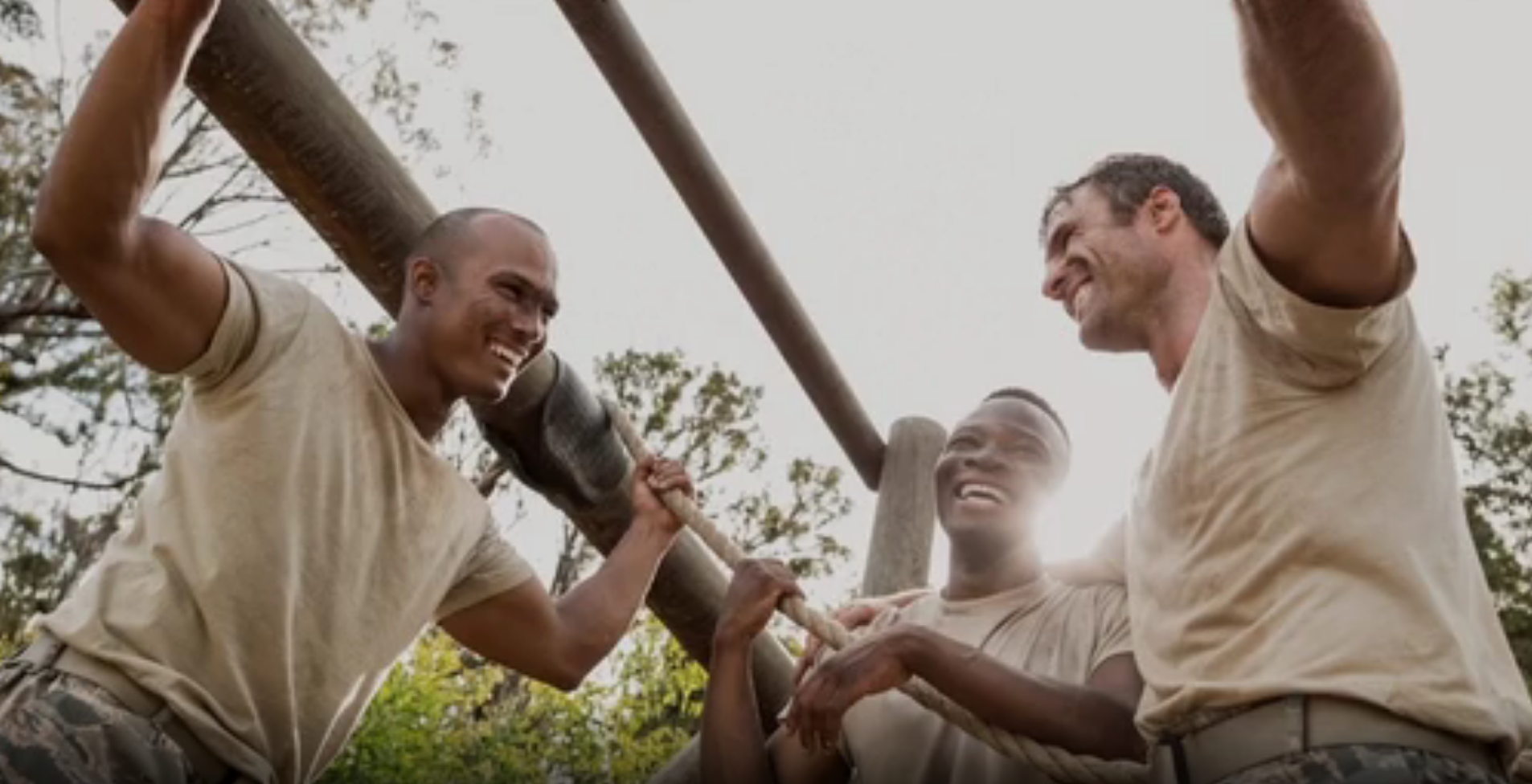Coming back home is a time of joy and celebration. Veterans return to their loved ones and homes—a much-deserved reward for their hard work and incredible sacrifice.
But coming home is hard.
In order for there to be harmony under one roof once more, there are several transitions that need to take place. Reintegration with family and friends is a must, and it takes time. Things will change over time at home, and deployment certainly changes the Warrior.
Warfighters may also bring back baggage they didn’t initially set out with—grief and pain. That baggage needs to be dealt with (correctly) and if it isn’t, its toxic sting affects relationships with others.
Navigating Transition
Although there are challenges that many Veterans face when they return home, there are opportunities to make the transition healthy and beneficial for everyone involved. Reintegration is a process—leaving room for the ups and downs and keeping lines of communication open.
Here are a few things to keep in mind:
- Coming home is a journey of transition and will take time.
- There will be good days and bad days—or even months—and this is a normal part of coming home.
- Each person involved needs to understand the journey and be prepared and committed to healthy communication.
Reintegration is a process.
Check out this video on one Veteran’s struggles with coming home.
The Ups and Downs of Coming Home
The initial joy and excitement of the return home eventually wear off. During the first few days and weeks of reintegration, Veterans and their families feel relieved and happy when deployment is over. This is known as the “honeymooning phase.” As weeks pass, unexpected challenges arise, making it difficult to find peace at home.
Returning Veterans may experience one or more of the following challenges:
- The Veteran feels a lack of ‘fit’ with family, friends, church, or other circles
- The Veteran feels lonely or isolated—especially if they are single.
- The Veteran feels hypervigilant about safety issues
- The Veteran feels a sense of diminished value or purpose
Likewise, family members are also going to have challenges:
- Ongoing anxiety about the next deployment
- Role confusion and changes in role functions
Each coming home story is unique and situations will be different. Transitions may be temporary or permanent. Others may be the first of many to come. Regardless of the circumstances, it is important to remember that everyone involved is carrying “baggage”. Families, particularly children, will struggle to know how to unpack this baggage.
Strategies for Success
Communication is key. There must be an intentional effort to help each other unpack baggage. Family meals where questions could be answered or experiences could be shared would be a great start. Creating a family timeline or album could help capture important events and is also a good way to alleviate feelings of sadness and disappointment generated during deployment.
Remember too, God will always be there to help you unpack your baggage. Thinking back to the Bringing Pain to the Cross module, we remember that we can always bring our pain and suffering to God. He is able to offer us freedom and healing from our pain.
Rebuilding Makes You Stronger
Coming home is only one of many opportunities Veterans have to rebuild their lives. A change in leadership or a new duty station is also a chance for a fresh start. In any case, God can comfort you, strengthen you, and restore you to the person He made you to be.
Coming home is only one of many opportunities Veterans have to rebuild their lives. A change in leadership or a new duty station is also a chance for a fresh start. In any case, God can comfort you, strengthen you, and restore you to the person He made you to be. Healing does make you stronger, but just like integration back into the home, it is a process. How is this possible, that we can emerge stronger than before?
We have learned several steps to the process:
- Remembering God’s love
- Expressing our pain through words
- Grieving
- Lamenting
- Bringing our pain to the cross
- Forgiving ourselves and those who have harmed us
As we go through these steps and learn from them, we’ll find that, through practice, we’ll be able to rebuild our lives and be able to better face suffering in the future. There will be up and downs as the journey continues, but God is there for us every step of the way.
God Restores Us
The Lord will comfort us when we are hurting, strengthen us when we are down and will restore the broken. He communicates these things to us through the Bible, so that we may have hope in Him and His promises. Through scripture we see God as the Great Comforter during times of sorrow and pain.
“Blessed be the God and Father of our Lord Jesus Christ, the Father of mercies and God of all comfort, who comforts us in all our affliction, so that we may be able to comfort those who are in any affliction, with the comfort with which we ourselves are comforted by God. For as we share abundantly in Christ’s sufferings, so through Christ we share abundantly in comfort too.” 2 Corinthians 1:3-5 (ESV)
When we suffer in our lives, it is likened to going through a refiner’s fire. Watch the video below to see what suffering can yield.
Through healing and resilience lives can be rebuilt that had been torn down from pain and suffering. God is the ultimate Rebuilder. His work in our lives gives us the power to heal and grow stronger:
In this you rejoice, though now for a little while, if necessary, you have been grieved by various trials, so that the tested genuineness of your faith—more precious than gold that perishes though it is tested by fire—may be found to result in praise and glory of honor at the revelation of Jesus Christ. 1 Peter 1:6-7 (ESV)
As you continue on in your healing journey, remember that we are here to help, offering programs like Never Alone and God Understands to help Service members and their families through the challenges associated with Military life.
Reflecting on a Journey
Coming home after deployment, rebuilding relationships with loved ones, and growing strong from our suffering are all a part of a process. Throughout this process, God gives us hope to see us through.
ASM’s Never Alone Series covers suffering, being heard, surrendering grief, and forgiveness. Here we have covered its last topics—homecoming and restoration. We have been on a journey to healing. God cares for you deeply because He loves you deeply, and He desires that your heart would heal. With support from loved ones, and the power of an almighty and loving God, you too can heal. You are never alone.
“For I will restore health to you, and your wounds I will heal, declares the Lord…” Jeremiah 30:17a (ESV)
If you or someone you know is going through these stages and would like to begin your own healing journey, please check out the program at neveralonemilitary.org.










